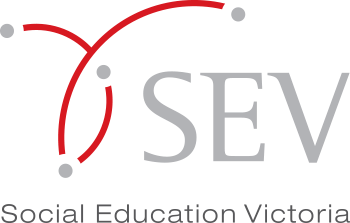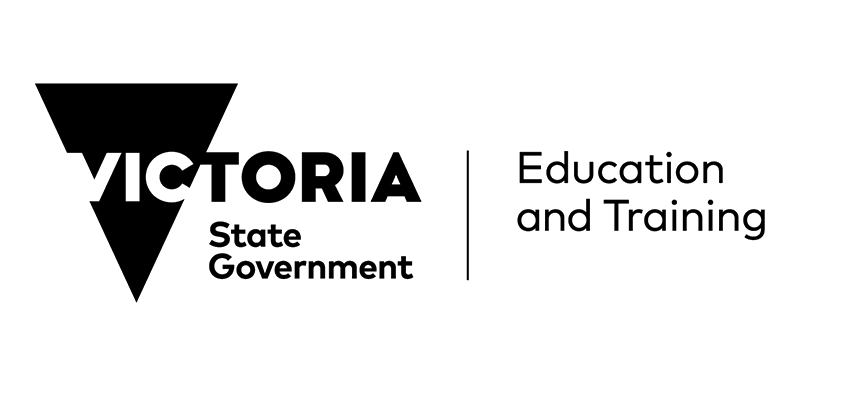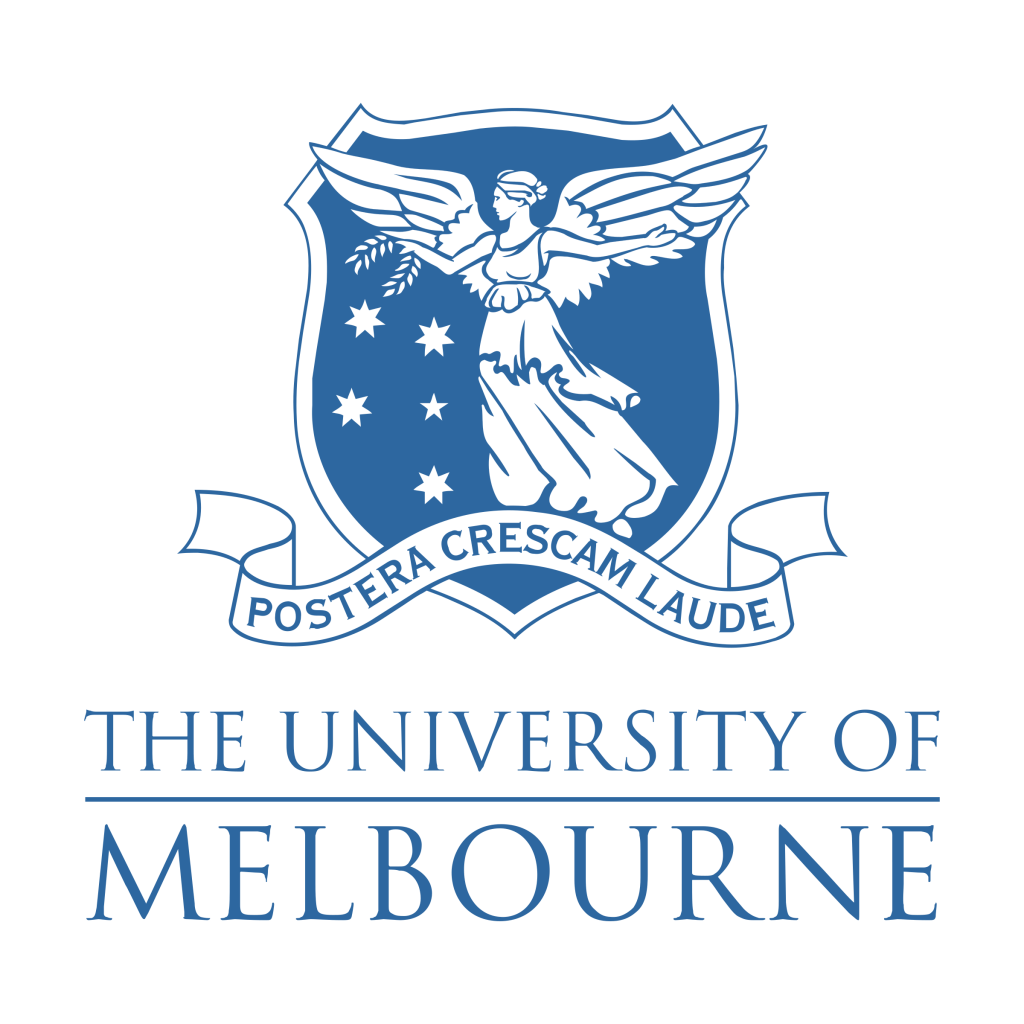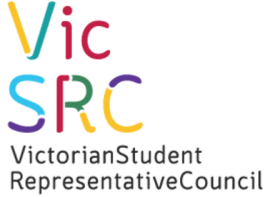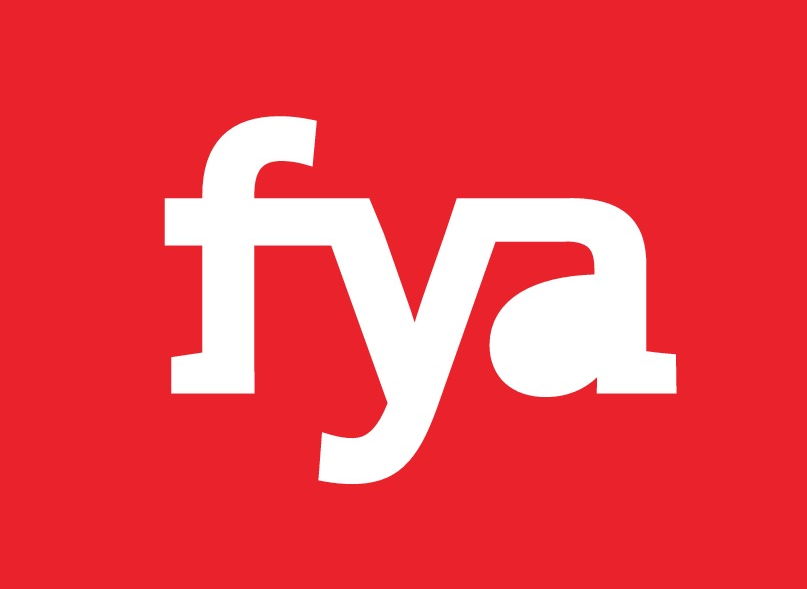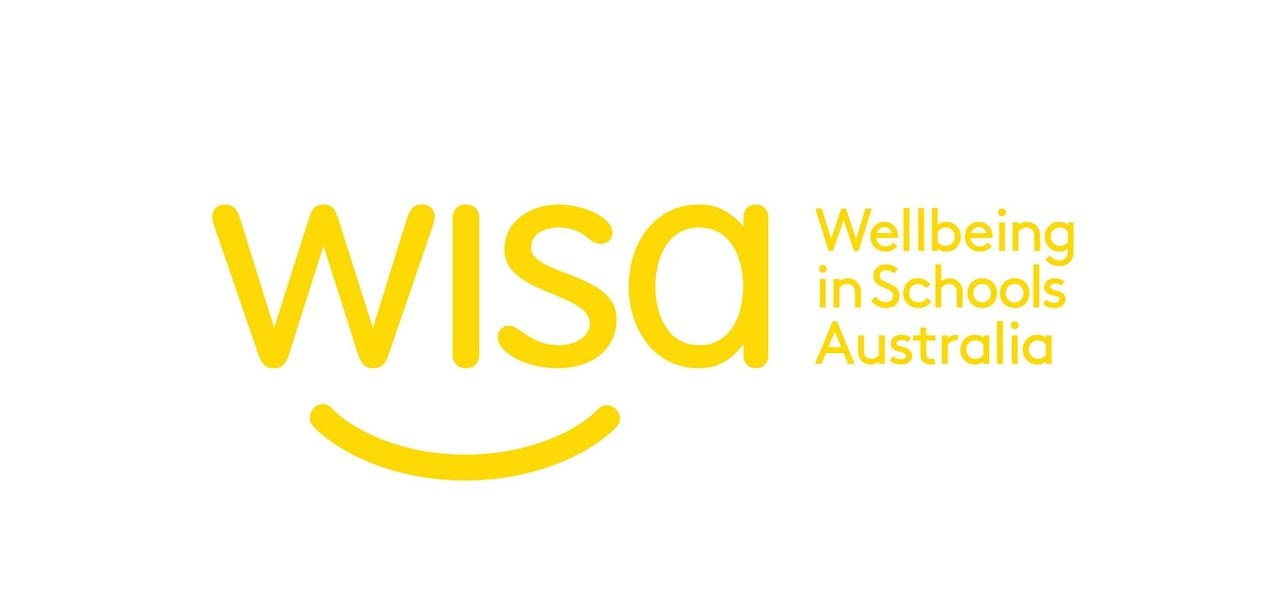
Achievements & Challenges Seminar (NSW)
About the event
Want to develop student voice, but not sure where to start? Join us for the Achievements & Challenges Seminar as we dive into the current state of student voice, agency, and participation.
In 2019 there was a major international conference around Student Voice, Agency, and Participation in Melbourne. Four years on from this face-to-face event:
- What has changed?
- What is the current state of play for Student Voice?
- How are these ideas embedded in school plans and practice, going beyond the rhetoric?
Whether you're a student, teacher, school leader, academic, policy worker, or part of a support organisation, this seminar is a must-attend! It offers a valuable opportunity to hear form a diverse range of stakeholders across the divides. You can engage in discussions with like-minded individuals from schools, communities, and the broader education system.
This seminar will challenge and inspire you as you explore innovative and practical solutions and strategies. Our expert panels comprise of a diverse mix of voices from different corners of education, working to bridge gaps and stimulate discussions. Let's embark on this journey of discovering innovative solutions and strategies together. Explore our lineup of speakers below!
Meet the Speakers
We're thrilled to be joined by three members of the NSW Minister's Student Council - Doug, Porter, and Dhishana! The NSW Minister's Council's mission is to empower students to have a direct say in education and school policy, and they're making a real impact in NSW. They provide a platform for student opinions, ideas, and feedback, ensuring a diverse range of voices shape education policies. As advocates for student engagement, inclusivity, and educational improvement, the Council has already influenced policy initiatives and provided crucial insights during the return-to-school process post-COVID-19.
We'll also be joined by Dr. Keith Heggart! Dr. Heggart is an early career researcher, former high school teacher, and school leader with a diverse background in education. His focus on learning and instructional design, educational technology, and civics and citizenship education is making a real impact in Australian youth. Currently, he's exploring the potential of online learning platforms to shape active citizenship among our youth.
Finally, we'll also be joined by the Youth Accountability Project (YAP)! YAP is a new systems-change project in NSW. The project – currently called the Youth Accountability Project (YAP) until young people give it a better name. YAP’s vision is for a society that deeply values children and young people, and creates the conditions for them to thrive in childhood and life. YAP contributes to this vision by increasing young people’s influence and ability to shape their own lives and the society they will inherit. YAP’s work is to enable young people aged 7 – 15 years to say what ‘good’ looks like, and then to support institutions of society move towards that.
Getting to the event
We recommend that you travel by Public Transport to this event. Paddy's Market Light Rail stop is just around the corner, with close connections to Central Station. Use TfNSW's Trip Planner to plan your journey. There is limited metered street parking available nearby and none within the immediate vicinity of the venue. If you want to travel to this event via a private bus, please reach out to discuss your plans. Local roads may not be suitable, and parking may not be available.
We are committed to creating an inclusive and accessible event. If you require accommodations to allow you to participate in this event, please contact us via email to have confidential discussion. This event is wheelchair accessible and will be held on the second floor of the Community Hub at The Dock. Access to the building is flat, and there is a lift to the second floor. Toilets are also located on both floors. Any documents or handouts can be made available in alternative formats, please contact us for more information.
What to expect
Light refreshments will be provided. Please ensure to advise of any dietary requirements, via the ticket form, at least 36 hours prior to the event. Requirements received after this deadline may not be able to be accommodated. We are committed to the continual improvement of our environmental performance, and to reduce our environmental impact we will only provide a limited number of single use items in our catering. To join us in this commitment, we strongly recommend that you bring a keep cup and a water bottle to this event.
This is a paid event, and your ticket will be scanned upon entry. If you're able to do so, we'd greatly appreciate if you'd also purchase an ACSV Lanyard alongside your ticket to contribute to the running costs of the ACSV. Tickets will not be sold at the event itself.
This event will be recorded. To allow for the continual sharing of knowledge, we’ll be recording this event and making it available to our community. Video and still photography will be captured, and this media will also be used in the promotion of the ACSV. If you do not wish to be photographed, please contact us prior to the event.
Safety
Getting to the Event
The ACSV is a child safe organisation. We have adopted the National Principles for Child Safe Organisations, and are committed to empowering young people through enjoyable and enriching experiences. The ACSV has a responsibility to protect all children and young people from potential harm that might arise during their engagement with us and in spaces which we provide. We share this responsibility with parents, guardians, and the child or young person. The ACSV will take particular care to minimise risks of exposure to unsuitable content, experiences, and inappropriate contact. To uphold this commitment, alongside other measures, all volunteers and ACSV Staff have a valid working with children's check.
Information you submit through the Ticket purchasing process, such as your name and email address, when made available to us are governed by our Digital Platform’s Terms of Use and Privacy Policy. We strongly encourage you to take a moment to familiarise yourself with this policy. As the tickets are available for sale only on Humanitix’s website, we strongly recommend that you take time to read through their Ticketing Terms and Privacy Policy
The full terms and conditions of entry are available on our website. Visit studentvoice.org.au/seminar for more info.

Achievements & Challenges Seminar (VIC)
About the event
Want to develop student voice, but not sure where to start? Join us for the Achievements & Challenges Seminar as we dive into the current state of student voice, agency, and participation.
In 2019 there was a major international conference around Student Voice, Agency, and Participation in Melbourne. Four years on from this face-to-face event:
- What has changed?
- What is the current state of play for Student Voice?
- How are these ideas embedded in school plans and practice, going beyond the rhetoric?
Whether you're a student, teacher, school leader, academic, policy worker, or part of a support organisation, this seminar is a must-attend! It offers a valuable opportunity to hear form a diverse range of stakeholders across the divides. You can engage in discussions with like-minded individuals from schools, communities, and the broader education system.
This seminar will challenge and inspire you as you explore innovative and practical solutions and strategies. Our expert panels comprise of a diverse mix of voices from different corners of education, working to bridge gaps and stimulate discussions. Let's embark on this journey of discovering innovative solutions and strategies together. Explore our lineup of speakers below!
Meet the Speakers
Hayley Dureau
Hayley Dureau is Assistant Principal at Mentone Girls’ Secondary College. Prior to this, Hayley was Head of Student Voice at Mount Waverley Secondary College and she has been recognised at state and national levels as a passionate and forward-thinking mathematics teacher and educational leader. Passionate about enhancing student learning by improving relationships between staff and students, Hayley’s work gave students the opportunity to provide professional learning for staff, drive elements the school’s strategic plan, design feedback tools which teachers use regularly, and allowed students to provide feedback and engage in powerful conversations around their learning, with their teachers.
Emma Donaldson
Emma Donaldson is an upper Primary School teacher at Melbourne Girls Grammar School, who is passionate about student voice. Emma recently shared an article in ReConnectEd about her work tackling the absence of Aboriginal and Torres Strait Islander knowledge systems, cultural representation and language in schools and communities. Emma will be joining us for the Achievements & Challenges Seminar, chatting about her work partnering with students to address the complex and important inclusion of Indigenous voices, history and culture in a meaningful way.
JSC from Rosanna Primary School with coordinators Sophie Cartelli and Caitlin Wheeler
In 2016, the Rosanna Primary School Junior School Council (JSC) decided that they no longer wanted to be just a fundraising body; rather they wanted to be a voice on behalf of all students and be proactive in taking action. They dedicated the year to a range of student-led initiatives, ranging from creating the ‘Voiceometer’ to use as a student voice measurement tool, to highlighting and celebrating student voice through the ‘Student Voice Awards’, and building a Chicken Coop which saw the development of our Garden Club. The Rosanna Primary JSC were recently published in ReConnectEd, and will be joining us at the upcoming Achievements & Challenges Seminar to chat about the work they’ve been doing to develop student voice and participation!
VicSRC
Victorian Student Representative Council (VicSRC) is the peak body and leading advocate representing school-aged students in Victoria. VicSRC was created by students to be a voice for all primary and secondary school students at the highest levels of decision making in Victorian education. Their vision is an education system that is student-led, student driven and student-focused. VicSRC CEO Julia Baron (she/her) will be joined by members from VicSRC's Student Executive Advisory Committee for the Achievements & Challenges Seminar, to chat about their experience representing students on a state-wide level.
Getting to the event
We recommend that you travel by Public Transport to this event. Tram Routes 11 and 48 stop nearby and are within the Free Tram Zone so there's no need to touch on your Myki. Southern Cross Station is 500 meters away. Use PTV’s Journey Planner to plan your trip. There is limited metered street parking available nearby and none within the immediate vicinity of the venue. If you want to travel to this event via a private bus, please reach out to discuss your plans. Local roads may not be suitable, and parking may not be available.
We are committed to creating an inclusive and accessible event. If you require accommodations to allow you to participate in this event, please contact us via email to have confidential discussion. This event is wheelchair accessible and will be held on the second floor of the Community Hub at The Dock. Access to the building is flat, and there is a lift to the second floor. Toilets are also located on both floors. Any documents or handouts can be made available in alternative formats, please contact us for more information.
What to expect
Light refreshments will be provided. Please ensure to advise of any dietary requirements, via the ticket form, at least 36 hours prior to the event. Requirements received after this deadline may not be able to be accommodated. We are committed to the continual improvement of our environmental performance, and to reduce our environmental impact we will only provide a limited number of single use items in our catering. To join us in this commitment, we strongly recommend that you bring a keep cup and a water bottle to this event.
This is a paid event, and your ticket will be scanned upon entry. If you're able to do so, we'd greatly appreciate if you'd also purchase an ACSV Lanyard alongside your ticket to contribute to the running costs of the ACSV. Tickets will not be sold at the event itself.
This event will be recorded. To allow for the continual sharing of knowledge, we’ll be recording this event and making it available to our community. Video and still photography will be captured, and this media will also be used in the promotion of the ACSV. If you do not wish to be photographed, please contact us prior to the event.
Safety
The ACSV is a child safe organisation. We have adopted the National Principles for Child Safe Organisations, and are committed to empowering young people through enjoyable and enriching experiences. The ACSV has a responsibility to protect all children and young people from potential harm that might arise during their engagement with us and in spaces which we provide. We share this responsibility with parents, guardians, and the child or young person. The ACSV will take particular care to minimise risks of exposure to unsuitable content, experiences, and inappropriate contact. To uphold this commitment, alongside other measures, all volunteers and ACSV Staff have a valid working with children's check.
Information you submit through the Ticket purchasing process, such as your name and email address, when made available to us are governed by our Digital Platform’s Terms of Use and Privacy Policy. We strongly encourage you to take a moment to familiarise yourself with this policy. As the tickets are available for sale only on Humanitix’s website, we strongly recommend that you take time to read through their Ticketing Terms and Privacy Policy
The full terms and conditions of entry are available on our website. Visit studentvoice.org.au/seminar for more info.

2023 Student Voice Symposium: Partnerships & Opportunities
The 2023 Student Voice Symposium focused on “partnership opportunities”, across two key areas: curriculum and pedagogy. This symposium took on a different format to previous years, being spread across three days, over three weeks. Each session heard from a different expert in the field, followed by a Q&A session. This conference took place online at no cost to attendees, to allow participation from guests from across Australia, and across the globe. All the sessions were recorded and available to watch on demand.
THE HISTORY OF STUDENT VOICE IN AUSTRALIA AND THE IMPACT OF STUDENT VOICE IN SCHOOLS
Wednesday 15th February 2023, 04.00 - 05.15pm AEDT
ABOUT THIS SESSION
The first session will centre around history and impact. Feature a wide range of perspectives, from current student: Sienna Gladstone, 2022 graduates: Jade Frame and Linh Dang, and from a long-term expert: Roger Holdsworth. This panel discussion will unpack key milestones in the ‘history of student voice’ before turning to answer questions around the current perspectives within Australian schools. This panel will look at curriculum, pedagogy and the various structures around implementing and embedding student voice within the education system. Finally, this session will link to Session 2 in unpacking improvements that can be made to the system to foster improved student voice.
PROVOCATIONS AROUND STUDENT VOICE
Thursday 23rd February 2023, 04.00 - 05.15pm AEDT
ABOUT THIS SESSION
The second session will speak to provocations within the student voice sector. This session will challenge the current operating model and the status quo, questioning how the education system can be improved, how it can grow for both the benefits of students and other stakeholders. This session will hear from a Master Teacher: Adam Brodie-McKenzie, Academics: Marie Brennan and Lew Zipin, and a recent graduate: Ahelee Rahman.
RESEARCH FRAMEWORKS
Friday 3rd March 2023, 10.30 - 11.45am AEDT
ABOUT THIS SESSION
The final session of this symposium will hear from Associate Professor Marc Brasof, an expert in student voice and civics education in the United States. Dr Brasof’s research focuses on democracy in schools through an intersection of student voice, project-based learning, and school-community partnerships. He has used his experience and research to develop a new framework for student voice, which he has published in his latest book: Student Voice Research: Theory, Methods, and Innovations from the Field.
Proudly Supported By

SVCMelbourne
This important conference brought together different stakeholders – people who are active locally, regionally, nationally and internationally in the areas of student voice, agency, participation, partnerships and leadership.It enabled participants to discuss current directions and issues in student voice, agency, participation, partnerships and leadership, particularly around areas of:
- The purposes and practices of education and learning, including curriculum and pedagogy
- Student agency in learning, including flexible learning
- School and education governance
Conference Organisational Details were:
Opening Night
Monday 9 December from 4:30pm to 7:45pm
Full Conference
Tuesday and Wednesday 10 -11 December from 8:45am to 5:00pm
Location
Arts West Building
Professor Walk, University of Melbourne
Parkville, VIC, 3052
This was a conference for:
Students who are taking leadership roles at local, regional, national or international levels to further the role of students in learning and school decision-making;
Researchers & Academics in the areas of student voice, agency, participation, leadership and student-adult partnerships;
Teachers & Practitioners working to elevate student voice, agency, leadership, participation and partnerships in learning and school improvement initiatives;
Leaders & Policy Makers committed to integrating student voice, agency, participation and partnerships into school decision-making and teacher education;
Organisations & Advocates with a mission to amplify student voice, agency, participation and student-adult partnerships in education redesign.
Conference Schedule
Conference Opening Evening
Acknowledgement of Country
Formal Opening: Mr Tim Richardson MLA, Parliamentary Secretary for Schools
Panel Introduction: Roger HoldsworthPanel Discussion: ‘The challenges that face us’
The voices of a researcher, teacher, students, support organisation, and policy-maker:
Dr Jenna Gillett-Swan, QUT, Qld
Mr Scott Duncan, Assistant Principal, Lalor East Primary School, Vic
Ms Kaden Litzinger, Delta High School, Pennsylvania, USA
Mr Demitri Kaminis, Mount Waverley Secondary College, Vic
Ms Nina Laitala, Executive Officer, VicSRC, Vic
Dr David Howes, Deputy Secretary, Department of Education and Training, Vic
Opportunities for Networking
Keynote address: Professor Dana Mitra: ‘Why student voices, agency and partnerships matter: their impact on classrooms, schools and policy.’
Day 1: Where Are We Now?
Plenary: Structure of the Conference and Objectives of Day 1
Role groups (students, teachers, researchers, policy, supporters): What is happening in our area?
Featured Presentation 1:• Hayley Dureau and students from Mount Waverley Secondary College:‘Student voice in the secondary school context’
Presentation Sessions 1:
A: Curriculum negotiation 1: How do students and teachers co-plan curriculum?• Nadine Crane: ‘Negotiating the curriculum with Grade 5/6 students’• Rebecca and David Wells: ‘Student voice in learning design’
B: Feedback and teacher change: How do schools use student feedback to create change?• Bradley Taylor: ‘Student voice in an ethnically diverse school community’• Maria Dacre: ‘Teachers’ responses to student voice in school contexts’
C: Well-being and Civics and Citizenship Education: How do systems support student input?• Kevin Perry: ‘Student perspectives on learning, a sense of belonging and classroom well-being’• Darcy Moore: ‘Nurturing democracy’
D: Inclusion and Re-engagement: How do students’ voices enable re-engagement?• Martina Bateson and Marilyn Casley: ‘Using narrative inquiry to give voice to young people in flexible and inclusive education’• Fiona Longmuir: ‘Leadership to bring students back to learning by enhancing voice and agency’
E: Resource videos: What resources are available to support student voice and agency?• Screening of videos e.g. from Victorian Department of Education and Training, New South Wales Department of Education, and Brisbane Catholic Education
'Un-conference’: emerging topics and dilemmas: informal groups around issues identified by participants:‘
Language as a Barrier’: Lynn Li Gan
‘Empowerment Versus Duty of Care’: Nina Laitala
‘Teacher Agency, Student Agency’: Adam Brodie-Mckenzie
‘Curriculum that Leads to Student Voice’: Domnall Fleming
‘Students on School Councils’: Antony Monteleone
‘Students with Learning Difficulties’: Jesse Jovellan
Presentation Sessions 2:
A: Curriculum negotiation 2: How do students and teachers co-plan curriculum? Marc Warwick and Amanda Hawkins: ‘Activating agency in all learners: a story of an Inquiry School’• Kerry Smith, Marilyn Casley and Jennifer Cartmel: ‘Talking circles’
B: Voices in Research: How do students’ voices inform research?• Emily Wong: ‘Student voice, shared ownership for learning and school engagement among minority students in Malaysian secondary schools’ • Roseanna Bourke: ‘Children’s conceptions of informal learning in everyday settings’
C: Community Research/Activism: How are students participating as community activists?• Mark Brennan: ‘Youth as researchers and ensuring youth voice: A case study from North Philadelphia’• Libby Tudball: ‘Young people activating their voice and agency through climate strikes: pushing the boundaries of inter-generational justice?’
D: System support: How do systems support student democracy and participation?• James Fiford and Amy Carpenter: ‘Evolving the VEC’s Passport to Democracy program to enhance authentic active citizenship opportunities for young people’• Ellie Jones, Joe Collins, Xavier Healy and Caitlin Britten (CEP): ‘Rural Inspire’
E: Agency: What do we mean by agency? How do we build it?• Benjamin Zonca: ‘How might the conditions of the learning environment promote ‘good’ agency and what happens when it doesn’t?’• Nigel Coutts: ‘Teaching for student agency: Constructing a school culture of student agency’
Featured Presentation 2:• Anne Graham and Catharine Simmons:
‘Improving wellbeing through student participation at school’
Discussion groups
Plenary
Plenary: Objectives of day 2
Featured Presentation 3:• Jeff Jackson, Rebecca French and Abbie, Peter and Tianah: Rosanna Primary JSC Executives: ‘Building agency by defining learning protocols’10:10 AM Discussion groups
Presentation Sessions 3:
A: Avoiding Tokenism (Roundtable): How can we avoid tokenism in classrooms, schools, conferences etc?• Daniel Vo: ‘What are the problems in the current school system, and how can it be improved?’• Mitchell Sprague: ‘Effective representation’• David Mould: ‘How well-intentioned events fail at student voice’
B: Use of Feedback: How can student feedback improve school practices? • Murray Cronin: ‘AMPLIFY: Building practice excellence through student voice’• Ilana Finefter-Rosenbluh: ‘Using feedback surveys in schools: does it even matter?’
C: External Agencies (Roundtable): How can external agencies support student agency in schools?• Amy Forward: ‘The role of Local Government in supporting student voice’• Brigid Little: ‘Student voice and leadership in community resilience and climate adaptation’• Fiona Bowen: ‘Museum of Australian Democracy’
D: Policy Initiatives (Roundtable): How can education systems initiate and support approaches to voice, agency etc?• Doug Sandiford: ‘Catholic Education Melbourne’s framework for wellbeing, eXcel, supports purposeful teaching that will motivate and engage young people as active agents in their learning and wellbeing’ • Stephanie Condon: ‘Amplify and Victoria’s integrated approach to empowering students through voice, agency and leadership’• Gillian Newall and Tracey Cronley: ‘Student voice, participation and leadership – NSW’• Carolyn De Witt-Ryall and Renee Devereaux: ‘Reflections on Engaging Children and Young People’s Participation in an Educational Context’
E: Inclusion: How can schools and systems be inclusive of the voices of students with specific needs?• Jemima Hutton: ‘Young people having a REAL and EQUAL voice in their future’• Nina-rae Smith: ‘Autistic adolescent girls and subjective wellbeing’
‘Un-conference’: emerging topics and dilemmas: informal groups around issues identified by participants:‘
Student feedback surveys’: Hayley Dureau
‘Salads vs climate change’: Jemima Hutton
‘Diversifying the educational workforce’: Katherine Mansfield
‘The phone ban’ and ‘2020 Phone Ban, is it necessary?’: Sienna Gladstone, Daniel Vo and Duc-Tri Bui
‘Critiquing Growth Mindsets’: David Trevorrow
‘How do we maintain morale?’: Demitri Kaminis
‘How to embrace student voice and agency but still get through the VCE study design’: James Daffey
Presentation Sessions 4:
A: Culture and Gender: How can the agency of young women be supported?• Katherine Mansfield and Rachel McNae: ‘The critical role of safe space and student voice for developing girls as leaders and activists’
B: Negotiating Assessment: How can students and teachers negotiate assessment?• Brodie Andersen: ‘Co-designing assessment and student-led classroom observations’• Domnall Fleming: ‘Student voice policy, practice and enactment in Irish schools: there be demons!’
C: Community Action: How can students take part in community action as part of their curriculum?• Lew Zipin and Marie Brennan: ‘Students researching ‘problems that matter’ in and with their communities’ • Simon Taylor: ‘Using local problems to promote student voice and agency’
D: Student-led Networking: How can student-led networks achieve change at state/regional level?• Nina Laitala and others, VicSRC: ‘The opportunities for and challenges of an authentic student-led organisation’
E: Technology (Roundtable): How can technology support students’ voices, agency and partnerships?• Ben Barnett: ‘Using technology to expand possibilities of student voice’• Trang Hoang: ‘Digitally mediated agency of international learners in Australian schools’• Laura Wong and Sarah Seymour: ‘Communication strategy within a digital school context’
Role groups (students, teachers, researchers, policy, supporters): Future directions for our area
Featured Presentation 4:• Eve Mayes, Rosalyn Black and Rachel Finneran: ‘Teach the Teacher: preliminary findings’
Discussion groups: what shall I do?; and evaluation
Final Plenary
Steering Committee
The Steering Committee:
Roger Holdsworth Conference Convenor
Manaia Chou-Lee Program Convenor and Student Advisory Group Co-ordinator
Mitchell Sprague Communications Director
Pablo Armellino
Adam Brodie-McKenzie
Ahelee Raman
Lea Campbell
Nadine Crane
Erin Cruickshank
Hayley Dureau
Wren Gillett
Nina Laitala
Brian Lee
Michael Lim
Dr Eve Mayes
Peta Oates
Olivia Sutherland
Bethany Shegog
Simon Taylor
Libby Tudball
Daniel Vo
This conference was hosted by Social Education Victoria and made possible by our partners.
The Steering Committee consisted of individuals interested and involved in areas of student voice, agency, participation and leadership. Members represented a diverse range of organisations and backgrounds including:
Connect Journal
The University of Melbourne
Victoria University
Deakin University
Monash University
Victorian Student Representative Council (VicSRC)
The Foundation for Young Australians
The University High School
Mount Waverley Secondary College
Overnewton Anglican Community College
Student Advisory Committee
The Student Advisory Group was the conference’s connection to students. The Steering Committee aimed to create a program that truly reflected what those involved wanted to see changed in the education system. The SAG involved young people who are taking leadership roles at local, regional, national or international levels to further the role of students in learning and school decision-making. Some of them were:
Brian Lee
Ahelee Raman
Mitchell Sprague
Daniel Vo
Our Partners
Past Events
-
2019 SVC Melbourne Conference
This important conference brought together different stakeholders – people who are active locally, regionally, nationally and internationally in the areas of student voice, agency, participation, partnerships and leadership.It enabled participants to discuss current directions and issues in student voice, agency, participation, partnerships and leadership, particularly around areas of: the purposes and practices of education and learning, including curriculum and pedagogy; Student agency in learning, including flexible learning; and School and education governance.
-
2023 Student Voice Symposium
The 2023 Student Voice Symposium focused on “partnership opportunities”, across two key areas: curriculum and pedagogy. This symposium took on a different format to previous years, being spread across three days, over three weeks. Each session heard from a different expert in the field, followed by a Q&A session. This conference took place online at no cost to attendees, to allow participation from guests from across Australia, and across the globe. All the sessions were recorded and available to watch on demand.
-
Achievements & Challenges Seminar (VIC)
In 2019 there was a major international conference around Student Voice, Agency, and Participation in Melbourne. Four years on from this face-to-face event:
- What has changed?
- What is the current state of play for Student Voice?
- How are these ideas embedded in school plans and practice, going beyond the rhetoric?
-
Achievements & Challenges Seminar (NSW)
In 2019 there was a major international conference around Student Voice, Agency, and Participation in Melbourne. Four years on from this face-to-face event:
- What has changed?
- What is the current state of play for Student Voice?
- How are these ideas embedded in school plans and practice, going beyond the rhetoric?


















